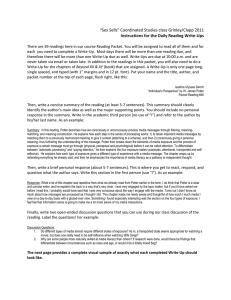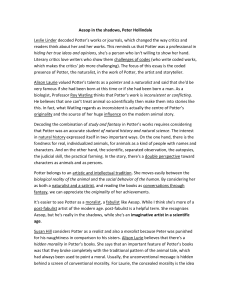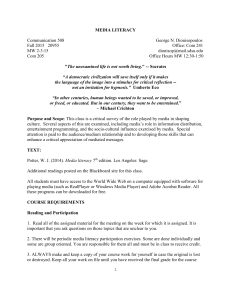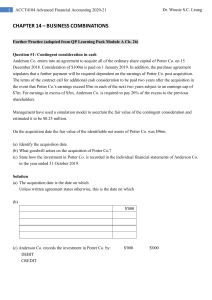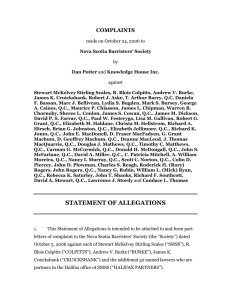Packet Reading Write-Up Student Sample “Sex Sells” Grinley/Clapp 2011
advertisement
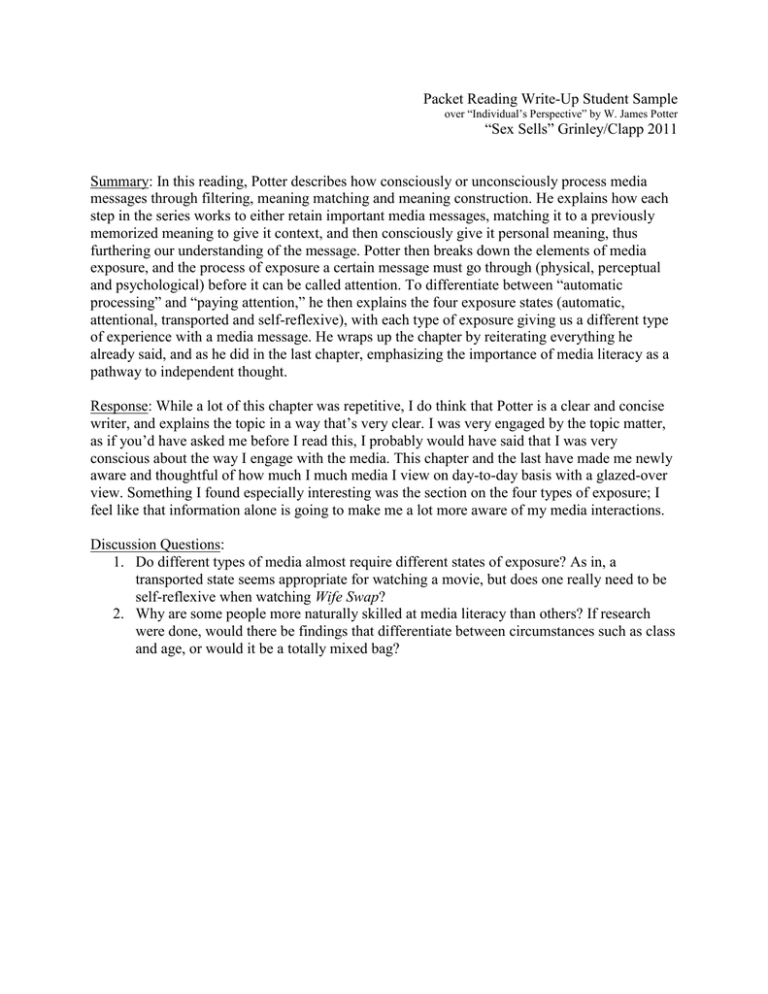
Packet Reading Write-Up Student Sample over “Individual’s Perspective” by W. James Potter “Sex Sells” Grinley/Clapp 2011 Summary: In this reading, Potter describes how consciously or unconsciously process media messages through filtering, meaning matching and meaning construction. He explains how each step in the series works to either retain important media messages, matching it to a previously memorized meaning to give it context, and then consciously give it personal meaning, thus furthering our understanding of the message. Potter then breaks down the elements of media exposure, and the process of exposure a certain message must go through (physical, perceptual and psychological) before it can be called attention. To differentiate between “automatic processing” and “paying attention,” he then explains the four exposure states (automatic, attentional, transported and self-reflexive), with each type of exposure giving us a different type of experience with a media message. He wraps up the chapter by reiterating everything he already said, and as he did in the last chapter, emphasizing the importance of media literacy as a pathway to independent thought. Response: While a lot of this chapter was repetitive, I do think that Potter is a clear and concise writer, and explains the topic in a way that’s very clear. I was very engaged by the topic matter, as if you’d have asked me before I read this, I probably would have said that I was very conscious about the way I engage with the media. This chapter and the last have made me newly aware and thoughtful of how much I much media I view on day-to-day basis with a glazed-over view. Something I found especially interesting was the section on the four types of exposure; I feel like that information alone is going to make me a lot more aware of my media interactions. Discussion Questions: 1. Do different types of media almost require different states of exposure? As in, a transported state seems appropriate for watching a movie, but does one really need to be self-reflexive when watching Wife Swap? 2. Why are some people more naturally skilled at media literacy than others? If research were done, would there be findings that differentiate between circumstances such as class and age, or would it be a totally mixed bag?
